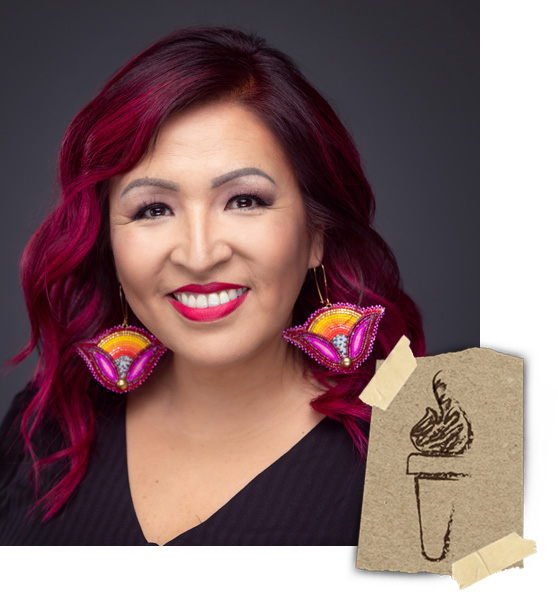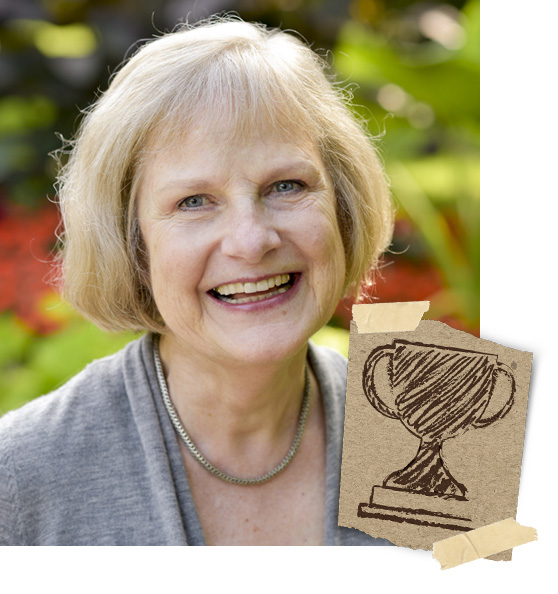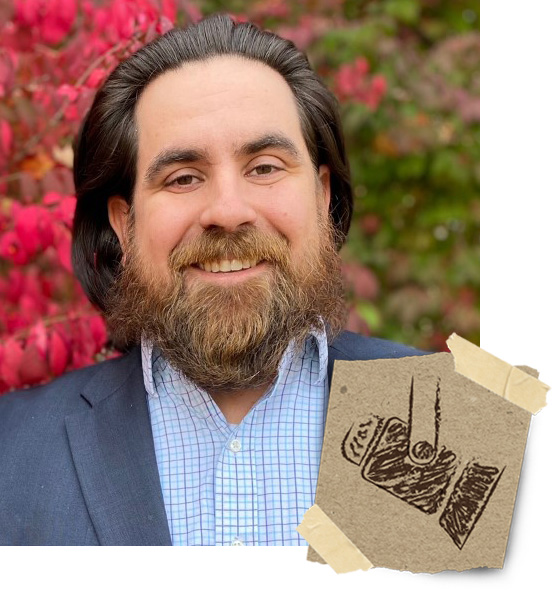Diversity Torch: Angie Sanchez
October 29, 2020
 Angie Sanchez is a PhD student in the Department of Geography, Environment and Spatial Sciences. Her dissertation research focuses on breastfeeding access for women in Indigenous communities throughout Michigan.
Angie Sanchez is a PhD student in the Department of Geography, Environment and Spatial Sciences. Her dissertation research focuses on breastfeeding access for women in Indigenous communities throughout Michigan.
A lifelong Spartan and businesswoman, Angie Sanchez changed the course of her career after overcoming personal struggles breastfeeding her son, and resolving to help fellow Indigenous women do the same.
My academic and career journey is actually extremely atypical. My entire career prior to coming back to school as a PhD student has been in business as an analyst. However, three years ago, I had my first and only baby, and I knew that I wanted to breastfeed but I didn't really know how.
I had some struggles initially, so I reached out to a couple of nonprofit and community organizations to try to navigate what was going on. Somebody recommended that I see a International Board-Certified Lactation Consultant (IBCLC), who informed me that my son had a tongue tie and that I could fix it.
After having that experience, I realized that if I had been in my home tribal community in Northern Michigan - I'm a member of the Grand Traverse Band of Ottawa-Chippewa Indians - I would probably have quit breastfeeding, because I wouldn't have access to the same resources that I have down here, both physically and also financially.
There's no way I would have been able to pay out of pocket to have the consultant come out to my house, or have been able to pay out of pocket to have that pediatric dentist correct my son's tongue tie. The other local nonprofit and community resources that I used just don't exist up there. Friends of mine who had recently had babies in the last couple of years were running into similar problems. They wanted to breastfeed, they tried, they had issues, but they had nowhere to turn for help. I realized that this is a problem that needed to be addressed.
That's what brought me to MSU for my PhD program. I decided that this problem-access to breastfeeding support resources for Indigenous mothers in Michigan-is what I wanted to spend the rest of my life fixing.
For her research in this area, Angie received a grant from the Michigan Health Endowment for almost $340,000. Angie will work with her faculty advisor, Dr. Sue Grady, to put the funding towards hiring Indigenous lactation consultants who can assist Native American communities throughout Michigan.
There's an organization called the Indigenous Breastfeeding Counselor Training Program, which was started by two Indigenous lactation counselors. They realized that, as Indigenous people, we have a right to breastfeeding knowledge, and that was taken away from us by force through colonization. Their goal is to bring that knowledge back to Indigenous communities. Breastfeeding in our communities is viewed as ceremony, so they want to present this practice through an Indigenous lens and restore that tradition.
This grant will pay for these counselors to come into 6 different tribal communities throughout the state of Michigan over the next couple of years. There, they will help certify tribal members as Indigenous breastfeeding consultants who can begin working within their communities to promote, teach and support breastfeeding mothers. I also plan on conducting surveys and talking circles to gather some qualitative data about knowledge and habits around breastfeeding within these communities before and after the consultants' visit.
Angie shares what she wishes more people would understand about Native American history and heritage.
One thing I wish people knew is that we still exist. We're still here. We have survived all of the attempts so far at decimating us. I can't tell you how many times I've walked around in my traditional regalia and have had children say, "Look, it's an Indian! They still exist?" Because all of their history books talk about us in the past tense. Not only do we still exist, we still exist 365 days a year. Not just on Indigenous people's day, and not just during the month of November - we are here all the time.
Many people in the United States like to say, "That was a long time ago," "Get over it," or "I didn't do that to you." And to those people, I would like to say, you're right - you didn't, but your ancestors did, and that doesn't mean you can't acknowledge that it happened and that it was wrong. It doesn't mean you can't do something about it now. So many people get offended when they learn that their ancestors did horrible things, and then focus on trying to deny it instead of attempting to course-correct and right those wrongs.
Lastly, I wish that people understood that while we have general similarities, that we have just as many differences from tribe to tribe. There are over 500 Indigenous languages in the US, over 500 different tribes, and we all have different components to our culture, our traditions, our ceremonies. So when you’re looking to learn more about Native American people, start with the actual place you live, learn about the history of the tribes that lived in that area, and learn from local folks first. Then when you reach out to learn from an Indigenous person from a different geographic area, you’ll begin to understand the subtle differences from tribe to tribe and realize just how unique we really are.
Read more:

Diversity Champion
Faculty/Staff
Dr. Susan Sleeper-Smith
Dr. Susan Sleeper-Smith is a professor in the MSU Department of History, as well as the Department of American Indian and Indigenous Studies in the College of Arts and Letters.

Diversity Spotlight
Alumni
Dr. Adam Farero
Dr. Farero is an MSU alumnus, a researcher, and a marriage/family therapist, whose scholarship focuses on mental health among military families. He also is an assistant professor in the MSU Department of Human Development and Family Studies.

Diversity Matters
We strive to cultivate an inclusive and welcoming college environment that celebrates a diversity of people, ideas, and perspectives.

